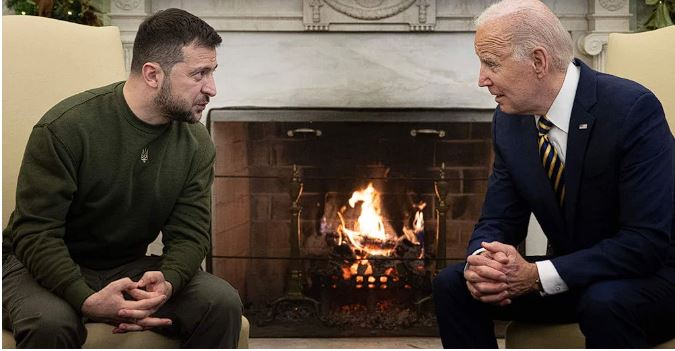
Another week, another frontline assault on Jeremy Corbyn from the Guardian. It’s a measure of the media establishment’s panic that the ‘Corbyn crisis’ has now overtaken even the ‘migrant crisis’ (never, of course, a ‘crisis for migrants’) as the most pressing ‘Operation Halt’.
Following Blair, Straw, Campbell and Johnson, David Miliband has now been rolled-in to deliver his stark warning over Corbyn. The Blairite rescue convoy now seems like an M20-type stack waiting in turn to denounce the menacing swarm of illegal entryists and system-threatening Corbynistas.
Alongside runs a relentless line of skewed ‘copy’ from Rowena Mason and other ‘political correspondents’. Just how many smears, one wonders, can be crammed into a piece under that cover role? Mason is, of course, well attuned to such chicanery, having plied her trade for many years at the Telegraph.
Following a shameless piece ‘covering’ the Jewish Chronicle’s attack on Corbyn, Mason continued with another deeply-loaded piece ‘reporting’ Channel 4 News anchor Cathy Newman’s own shabby ambushing of Corbyn over the same scurrilous anti-Semitism claims.
If the Guardian, Channel 4 and the rest of our ‘enquiring’ media had the remotest integrity they would be headlining and exposing such fabrications. Instead, the slurs are ‘reported’, repeated and allowed to rest as part of a massively-weighted body of ‘news’ and opinion, supposedly ‘balanced’ by Corbyn’s denials.
The much-hyped ‘intervention’ of Gordon Brown is a glaring case in point.
The Guardian wasted no time in getting him front-paged, with those all-important smear lines written-up, alongside, by Mason and her associates.
As with the Scottish independence vote, Brown has been wheeled-out as some kind of ‘reluctant sage’, intended as a more ‘respectable’ and persuasive figure than Blair or Campbell.
But, as with the Indy vote, and despite such favoured presentation, there’s been a notable backlash against Brown’s posturing, his fellow Labour ‘saviours’, and, increasingly, the Guardian itself for its complicit hosting of them.
In response, Guardian regular Suzanne Moore is now crying foul over ‘hostile’ Corbynites who are ‘abusing’ those ‘daring’ to speak out against Corbyn. Keeping up?
As Moore bewails:
You should be able to express doubt about Corbyn without risking vitriol.
Note the coy use of words here: while an entire media effort to bombard Corbyn with abusive distortion can be reduced to “doubt”, responses to it are to be condemned as “vitriol”.
Moore goes on:
I am sure Corbyn genuinely does not want to sink to the level of yelling at his opponents, but the specialist subject of some of his supporters is vile abuse. This may just be the modus operandi of social media now, but it is unedifying to see that the mood music of those who would enact the socialist dream involves, at times, screaming at anyone who harbours any doubt about Corbyn. Express the slightest qualm about his potential leadership and you’re apparently a war-mongering moron who feasts on homeless people. Or, if you are Liz Kendall, basically to the right of Iain Duncan Smith.
At the risk of being labelled part of Moore’s ‘vitriolic pack’, this is the most crass hyperbole, a facile sweep of the issues and debate, implying that alleged abuse from “some” on social media is somehow representative of, or particular to, Corbyn supporters.
More specifically, Moore laments that she:
was disturbed by the vitriol poured out against Gordon Brown this weekend, even while I’m aware of his flaws.
Again, note the passive use of “flaws”, few of which are actually probed. Instead, Moore uses her piece to talk-up Brown’s ‘respectable intervention’, stoutly defending his record in office. Yet, amongst these “flaws”, she conveniently fails to mention his central part as Treasurer in funding and supporting the war in Iraq.
Perhaps the passage of time has given Brown space for honest, moral reconsideration? Not so, as made abundantly clear in his own evidence to Chilcot, where he reaffirmed his support for Blair’s motivations and conduct. This was nowhere to be seen in Moore’s gushing account, not deemed one of his “flaws”. A safe Guardian oversight, no doubt.
Moore’s version of ‘morality politics’ here reflects the kind of ‘bad apple’ line the Guardian’s executive editor Jonathan Freedland often adopts when seeking to mitigate Israel’s criminality, as in denouncing Netanyahu, but staying soft on co-criminals like Livni.
Likewise, Moore assures us, criticism of people like Blair and Campbell is “entirely understandable”, but not applicable to Brown, who, we must assume from Moore’s apologetic screed, was one of the ‘silent waverers’, a ‘deep-down dove’.
Yet, as noted in his own unambiguous declaration, that was never the case. And if he ever did have ‘quieter misgivings’, why didn’t he declare them before the slaughter and resign in good conscience?
The Guardian’s coverage of Brown tells us much about the pernicious cycle of smear and containment. Firstly, there’s the eagerly-hosted attacks from people like Blair and Brown, followed by glowing coverage from ‘correspondents’ like Mason, leading to Moore’s kind of rearguard demonisation of those challenging those smears and the ‘reporting’ of them.
It’s more mounting evidence of how the establishment line is crafted and peddled in ‘crisis’ situations, and the pressing need, in ever-civil manner, to expose, boycott and exit the Guardian.




Good article,if a little too kind to the Guardian,whose coverage stinks to high heaven
At the moment, Sodium Haze seems to be a one trick pony; criticising the Guardian over its Jeremy Corbyn cover. Well, I suppose that is well founded, but I don’t bother to read these articles, because I know more or less what they are going to say. But then, the Guardian does cover a variety of opinions, and I suspect that the right wing press doesn’t.
we have stories on monetary reform, the massacre in Egypt, the new court charges, benefit sanctions, austerity and climate change to name but a few in recent days – but we would welcome your input if you have anything to offer besides moaning – if not, write your own blog. Some of us have to juggle proper jobs and childcare alongside unpaid activism. The Guardian is a multi-million pound corporate media portal – do you seriously expect that a small volunteer community can match that?